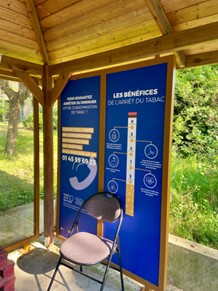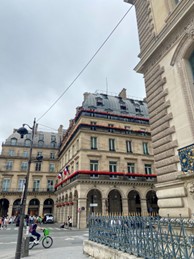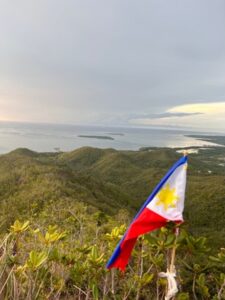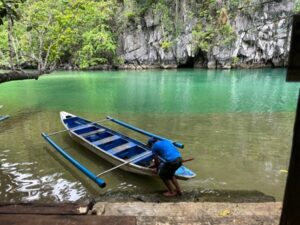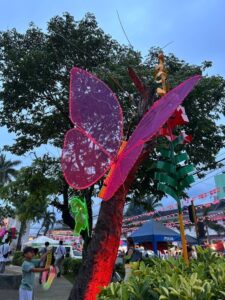As I began the second half of my practicum in Tanzania, my focus shifted from finalizing the website as my first deliverable for Nguzo Women and Youth Foundation to content development.
The Director of Nguzo invited me to several events with a variety of Non-Governmental Organizations during the week leading up to International Day of the African Child. First, we went to Gabriela Rehabilitation Centre, where teams from local schools in the Hai District competed in the championship brackets in football, otherwise known as soccer in the United States. Although the occasion appeared to be sports-oriented, there was a strong component of celebrating community partnerships that support the process of establishing well-being and health education efforts across communities. The nonprofit leaders and local mothers (Mamas) invited me to play net ball with them, so I joined in despite not being able to understand any of the rules given in Swahili.
One of the most special moments was when I realized that my concern and care to be an ethical global health professional was received well by the community. On day one of my practicum, the Nguzo Women and Youth Foundation team gave me a nickname of “Manka,” which is a name from the Chagga tribes given to second-born children. After participating in events with local nonprofits, children, and their Mamas, they would all greet me with enthusiasm, saying “Manka!” and sometimes approaching for a hug. In these moments, I realized that a great measure of a community’s receptivity to the global health work you are doing is how they respond to your presence.
This day was a turning point in learning that global health work does not equate to being serious 100% of the time, as long as ethical choices are being made. People are smiling, so you might as well too. People are dancing, so you might as well too. Standing in a corner watching people at events is even more voyeuristic than joining in. If the community wants you there and you are doing intentionally ethical work, it is logical, permissible, and welcomed to join the fun and let memories be made, when invited.
Another event involved participating in a parade with children and a multitude of nonprofits and gathering for an assembly to celebrate International Day of the African Child. The Nguzo team asked me to capture content for marketing materials, which are essential for fundraising, partnership development, and recruitment of volunteers. On this occasion, I struggled to find a balance with ethical photography since so many people were involved and I was clearly one of very few people in the room who was visiting from another country. When cultural dances were performed by the children, I communicated with my preceptor to determine whether it was appropriate to record.
I returned to the office for the remainder of my practicum and developed videos for Nguzo’s social media based on the material gathered from the events. If you are interested in viewing them, the YouTube channel and Instagram accounts share the username of @Nguzo_WY_Foundation. I also worked with the Director to develop a set of interview questions for the team to answer for a clear description of Nguzo’s programming and communicate their desire for funding support to expand their movement. Piecing together this interview-based video was my second deliverable.
Lastly, and perhaps most importantly, I focused on sustainability. I developed a maintenance guide for the website, reviewed key points with my preceptor, and recorded an explanation of several editing procedures for the website. I compiled the ideas and future tasks that we brainstormed together as a team for the organization and ensured that the community partners and Non-Governmental Organizations from the events received the photos.
I am grateful for the brief time I shared with Nguzo Women and Youth Foundation and the team has expressed they are certain that my work will have a lasting impact on the future outlook of the organization.
If you are interested in learning more about Nguzo Women and Youth Foundation, please visit nguzofoundation.org.
Thank you for reading!
Kelsey Cohn

